"People Don't Imagine the Shortage That's Coming Soon"
Rafi Sahara, who grows most of the country's cucumbers, is certain that a significant shortage is expected this year. Aryeh Bernes, who grows fruit orchards in Shomera, discovered that they are now considered "firing zones," and Sharon Cohen's greenhouses in the south were directly hit by missiles. Farmers talk about the situation: "Agriculture is in a terrible state, and it's hard to believe it will improve."
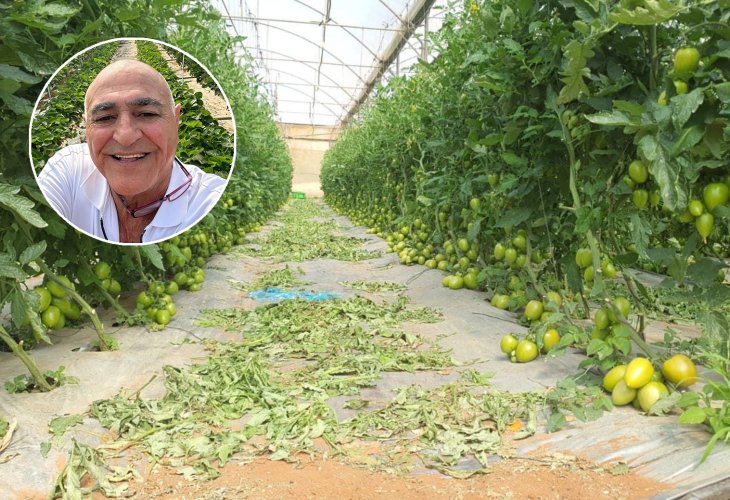
Nearly six weeks have passed since the Hamas attack, and one of the sectors experiencing the gravest crisis is agriculture. Farmers from the north and south speak with pain about how produce is left in the fields and on trees, with no one to pick or harvest. Some fields are considered firing zones, making entry prohibited, and even those that can be accessed often go unworked due to a severe labor shortage.
"But the issue isn't just ours; it's a major blow that will affect every citizen in the country," they warn. "We will soon feel a real shortage, and this is just the beginning."
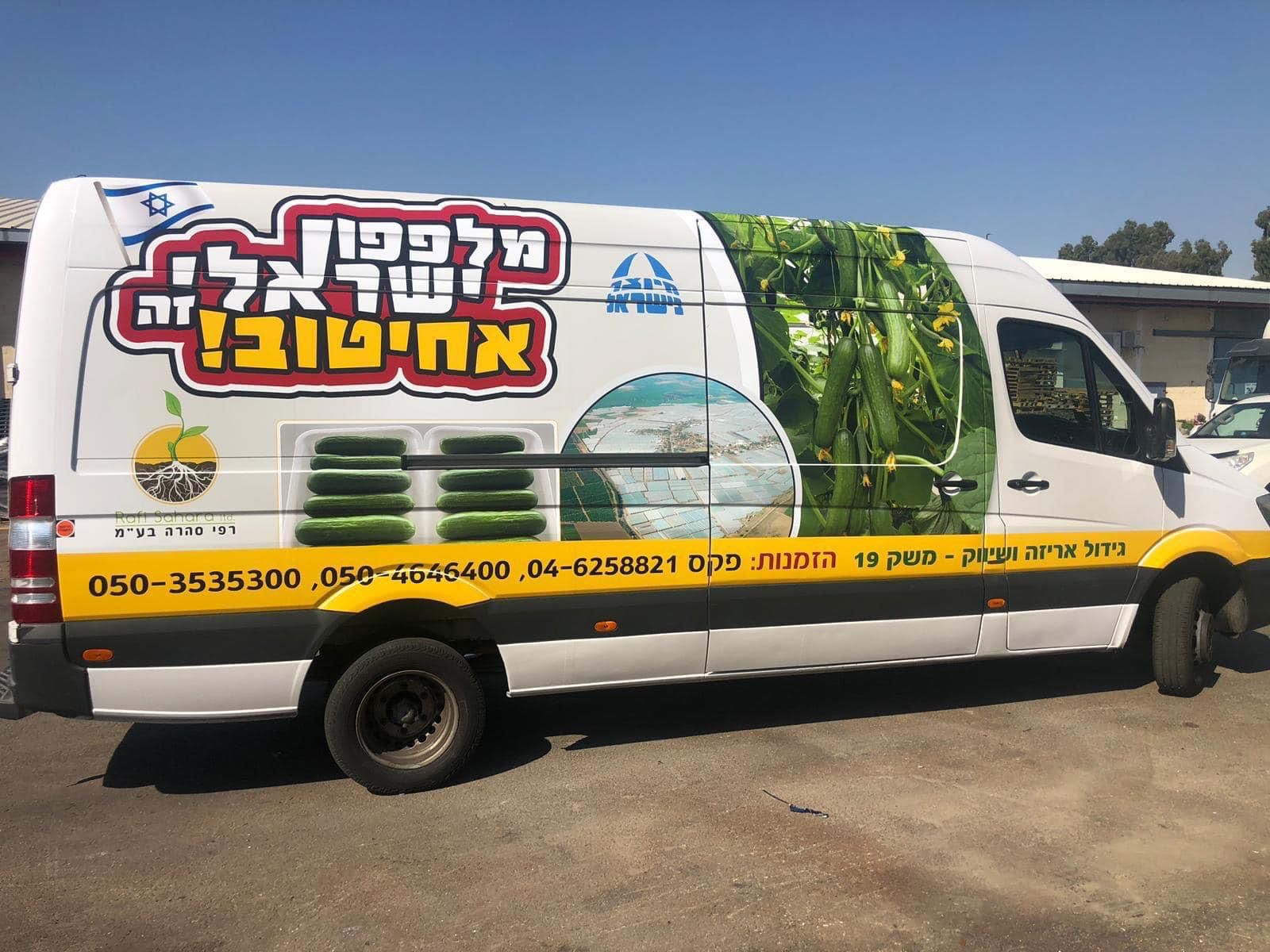
Rafi Sahara: "The Thais Fled"
Take, for example, Moshav Ahituv, where around four thousand dunams of cucumber greenhouses are grown, supplying about 60% of the country's cucumbers. "Since we are transitioning to winter crops, all the seedlings are in nurseries, and there's no one to care for them, which delays everything," explains Rafi Sahara, who is in charge of cucumber growing. "Even for the ready seedlings, there's no available workforce to plant them, making it hard to start the new winter season."
"Our problem is compounded," he adds, "because in addition to many workers being recruited and a lack of manpower, when the war broke out, the Thai government asked all Thai workers to leave Israel en masse. We are now in a state of collapse, and my estimate is that in about a month, Israel will no longer have our produce."
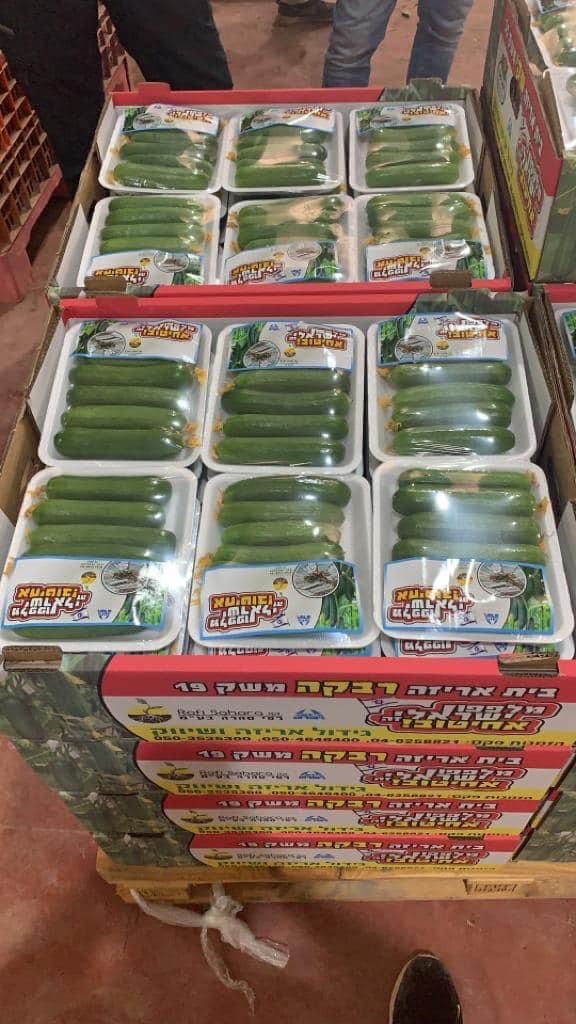
Sahara commends the many volunteers who come to help even in the rain and during such a busy time. "But it still doesn’t meet the full need," he emphasizes, "because under normal circumstances, we have about 700 foreign workers, but now we are left with only 120. The volunteers help maintain the current situation, but we can’t start the winter season as we usually do."
Sahara refuses to give up hope and is confident that there is something to be done. "I met with the Agriculture Ministry's director general and senior officials," he shares, "and they promised to approve the immediate recruitment of 5,000 workers from any viable country – Nepal, India, Sri Lanka, or any other. I feel that the ministry is truly making every effort to recruit the workers immediately, but even if approvals are granted now, the workers won’t arrive immediately. Meanwhile, we try to maintain the status quo, but unfortunately, we can’t renew the winter season as we usually do. The result will be that in about a month, the shortage will be felt."
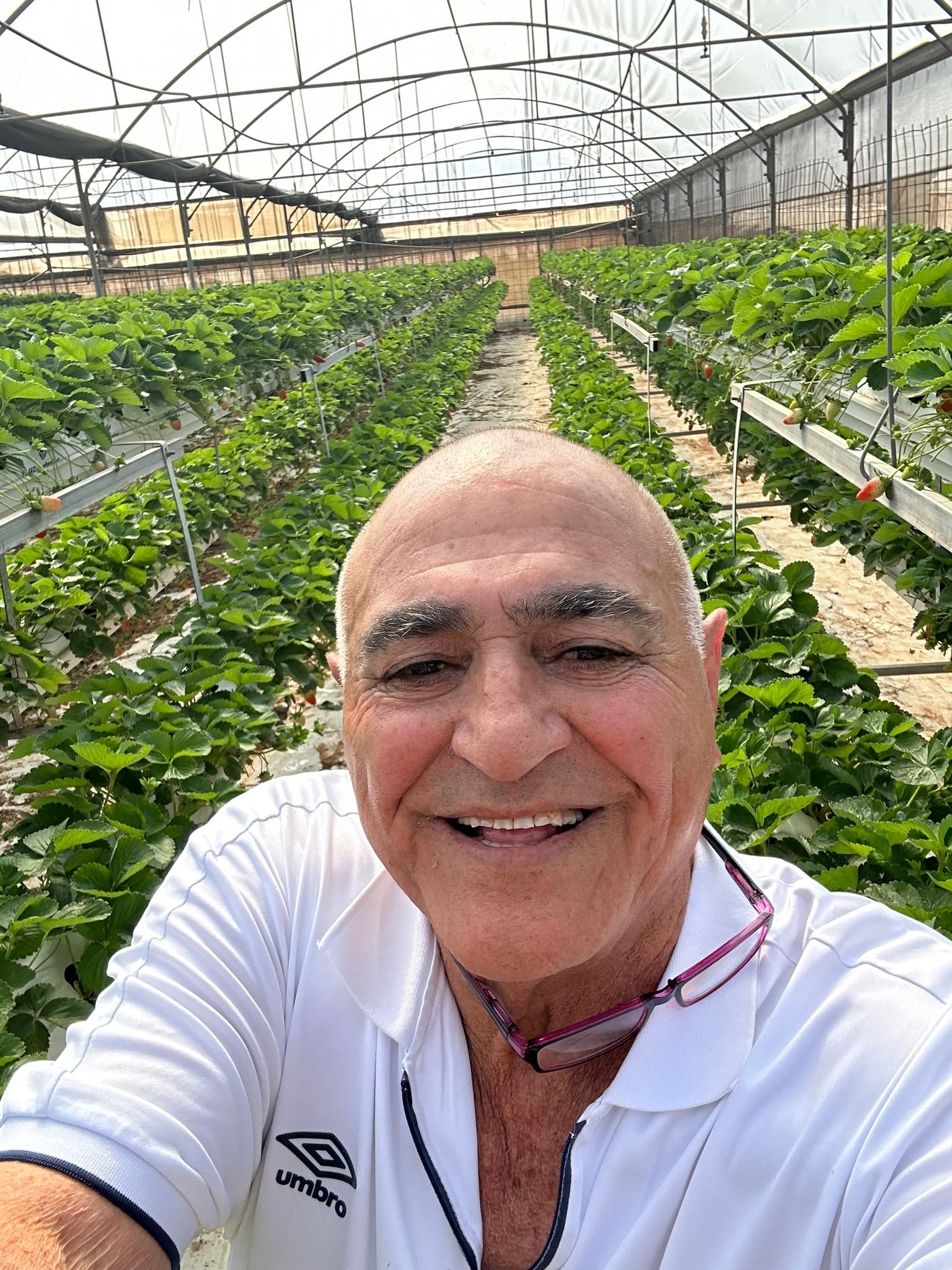 Rafi Sahara
Rafi Sahara Can Israel not import vegetables from abroad in times of shortage?
"There are currently no vegetables from abroad. Turkey has closed its gates, as have other countries that are not interested in relations with Israel at this time. This is precisely the issue that farmers have warned about for years – Israel must back its farmers and support them so that they prepare the nation’s food supply without relying on other countries. Unfortunately, the country has not encouraged this, but rather allowed networks to import vegetables from any possible country, including Gaza, Jordan, and Turkey, thereby clashing with the farmers. Over the years, the state has increased water prices and pegged foreign workers' wages to the minimum wage of Israeli workers, asking us to produce under these conditions. It was clear we couldn’t produce under such a gap."
Aryeh Bernes: "The Orchards Became a Firing Zone"
"We’ve always grown apples, peaches, nectarines, pears, persimmons, and apricots, but now we are almost not operational," says Aryeh Bernes, a resident of the Shomera settlement near the Lebanese border. "Since October 7th, nearly all residents have been evacuated. Occasionally, we receive permission to come and work a little, so we arrive with volunteers, trying to pick and do what’s needed, but we actually manage to harvest maybe four or five containers until we are ordered to leave. Several times we were permitted entry and had gathered volunteers, but once we were in the field, we were notified that the situation did not allow entry, so we returned. The situation is very problematic, and the damage is substantial. Without workers, there is no harvesting, no pruning, no spraying, and all the fruit goes to waste. The damage is immense. According to my estimates, it will take us at least two to three years to repair, on top of the damage caused by not selling the fruit after all expenses have been paid."
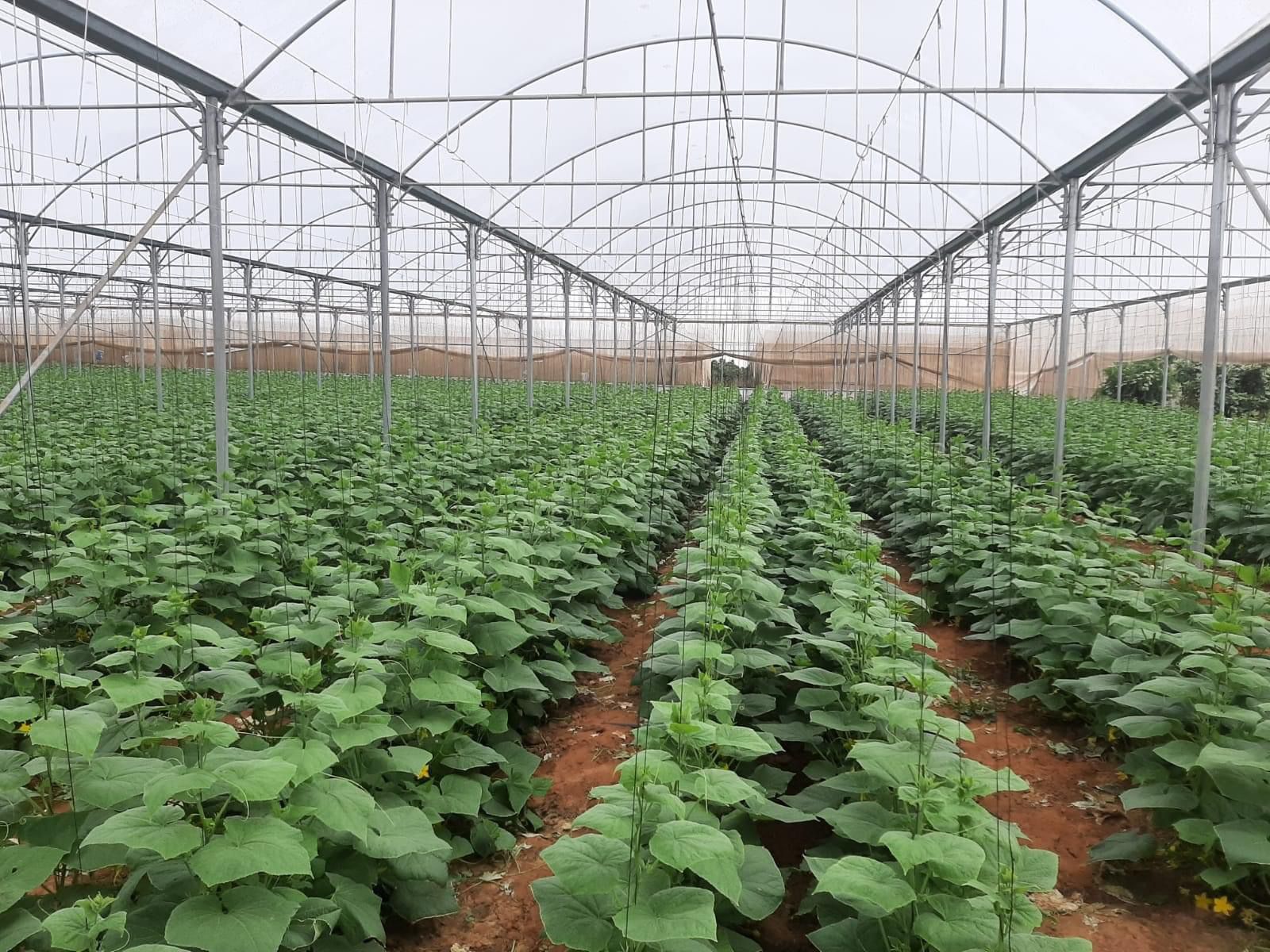
How will this manifest in practice? Do you think we are facing a fruit shortage?
"There will clearly be a shortage; it will be felt in the coming months, and if there is no significant change, then even in the summer and possibly next year. The big fear is that if the war doesn’t end with a decisive defeat for Hezbollah, and it continues to attack and shoot without fear, it might be that farmers won’t return to the north at all, where the country’s largest orchards are located. Despite the difficulties, we must address this issue to bring back residents and allow us all to live. We provide the country’s security fence, and I'm saying this not just as a farmer, but as someone genuinely concerned and who cares about this issue."
Sharon Cohen: "Insist on Local Produce"
"The state of agriculture in the country worsens year after year," testifies farmer Sharon Cohen from the south, "on one hand, they talk about a free market, but on the other, the market is not truly free. The state sets the prices for fruits and vegetables. It requires us to pay absurd wages to foreign workers and collects astronomical sums for water prices, while giving water to Jordan for free. Ultimately, when we sell the produce to stores, the profit gap farmers receive compared to the selling price can reach 80%. While I get 2.5 shekels per kilogram, some places sell it for 7-8 shekels."
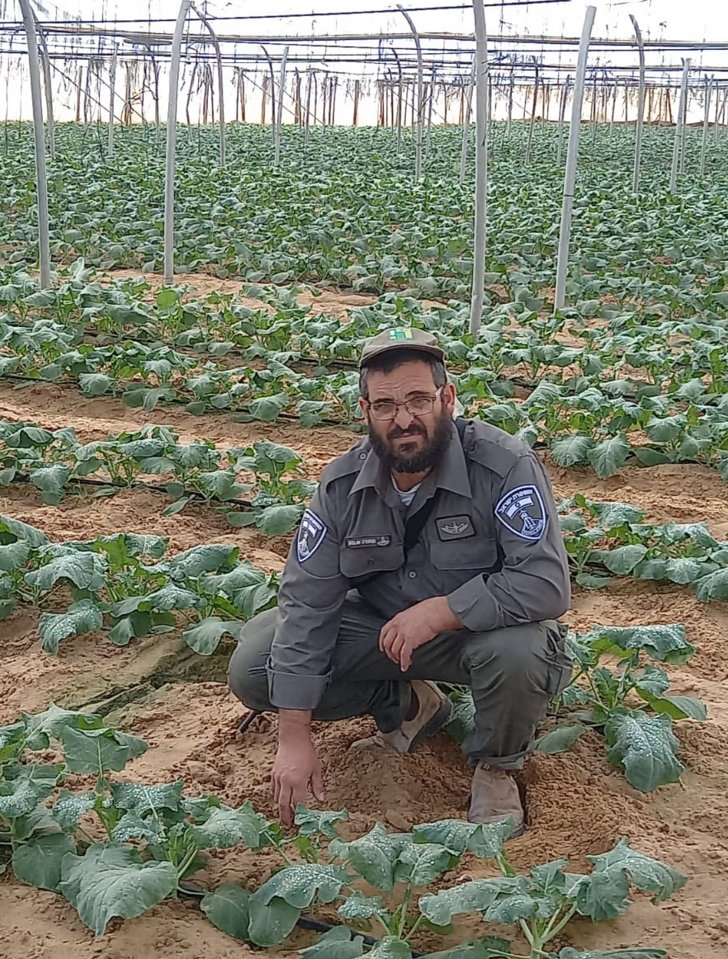 Sharon Cohen
Sharon CohenInto this difficult situation, war erupted, causing massive damages. "For about three weeks, we couldn’t even tend to plots that require daily care and intense cultivation," explains Sharon. "So all plots were neglected, fruits remained in the ground and on trees, and they were discarded later as they rotted. Moreover, there is a huge shortage of workers because only we are left. It’s like letting doctors run hospitals without nurses, no computers, and no staff. Additionally, during the war, there were water cuts lasting four or five days, causing fruits and vegetables to suffer burns and sun damage, which is another damage."
According to Cohen, the situation is unbearable, and thus the fear among farmers is so great. "In the next two months, there will still be produce to harvest, but we know we are facing a very serious crisis that will manifest in the following months, and I think the state doesn’t even understand the magnitude of the crisis. By way of example, I grow specific small vegetables for the Ministry of Education through Kibbutz Alumim. These vegetables are packed and sent to children in kindergartens and schools nationwide. The investment in these vegetables is massive, and right after Simchat Torah, we were supposed to start recouping it, which did not happen, of course. Now it seems we have no chance of standing on our feet unless a miracle happens."
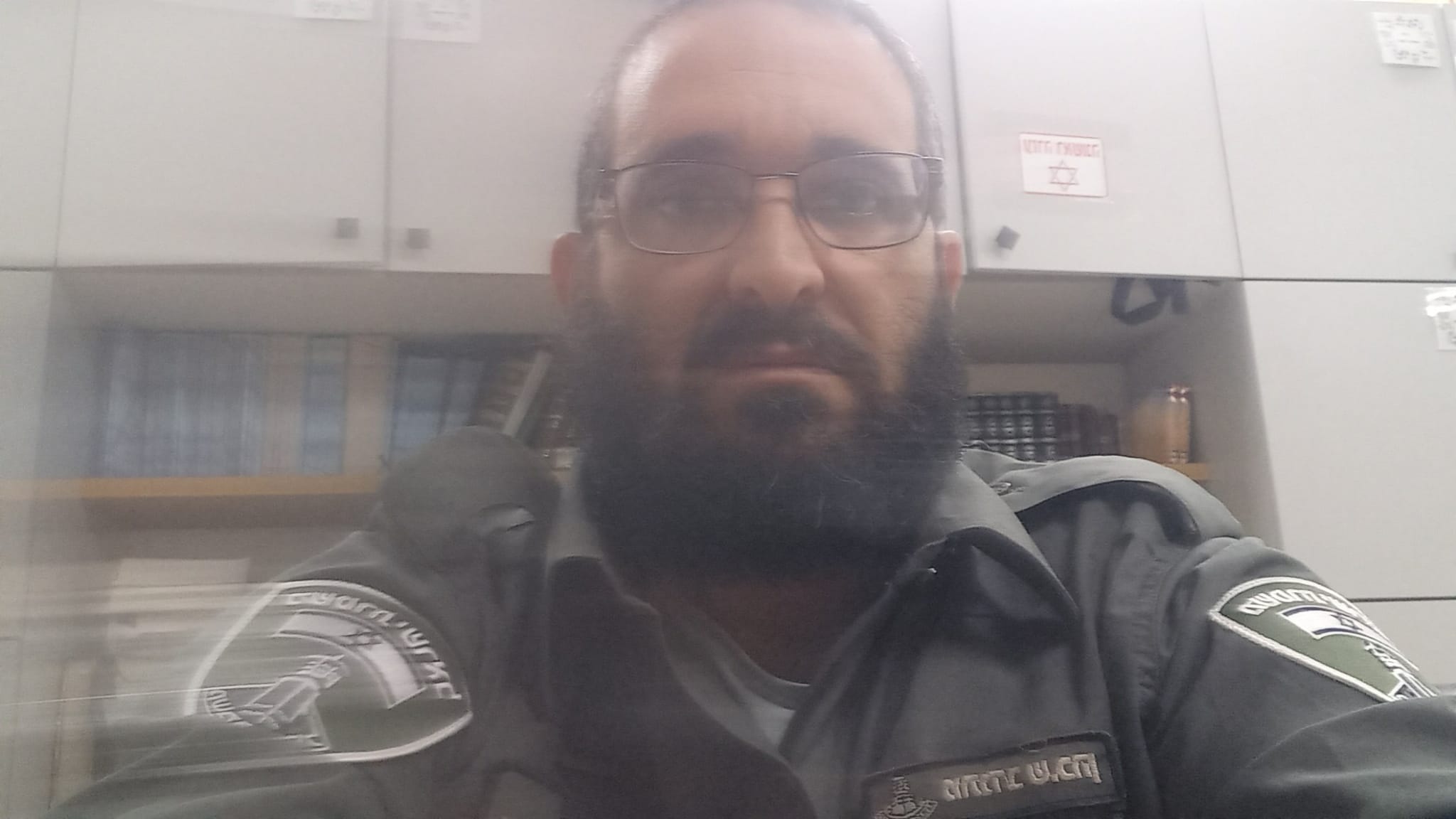
If the state allows the entry of foreign workers, will it help save the situation?
"I really don’t know how they will manage to find so many foreign workers willing to come at such a time, and from what I hear, it seems labor force will be very limited, meaning almost no agricultural produce this year. Personally, I can already state that I have suffered millions in damages from rocket hits on greenhouses and farm damage, as well as huge losses from unharvested field vegetables thrown away. Clearly, the public will bear the costs, and prices for fruits and vegetables will double and even triple, and that’s in the best-case scenario when they are even available for sale."
And in your opinion, what can be done?
"First of all, I think there's a lesson here the state must learn for the future. Having served in the military in the medical corps, I saw the army's drug inventory. The army prepares as if the entire country might be affected, understanding there must be preparation for any crisis, hoping it never comes. If the state dedicated even a fraction of this to agriculture, ensuring during wartime, farmers could survive, and the public enjoyed local produce at reasonable prices, it could certainly help in saving the situation."
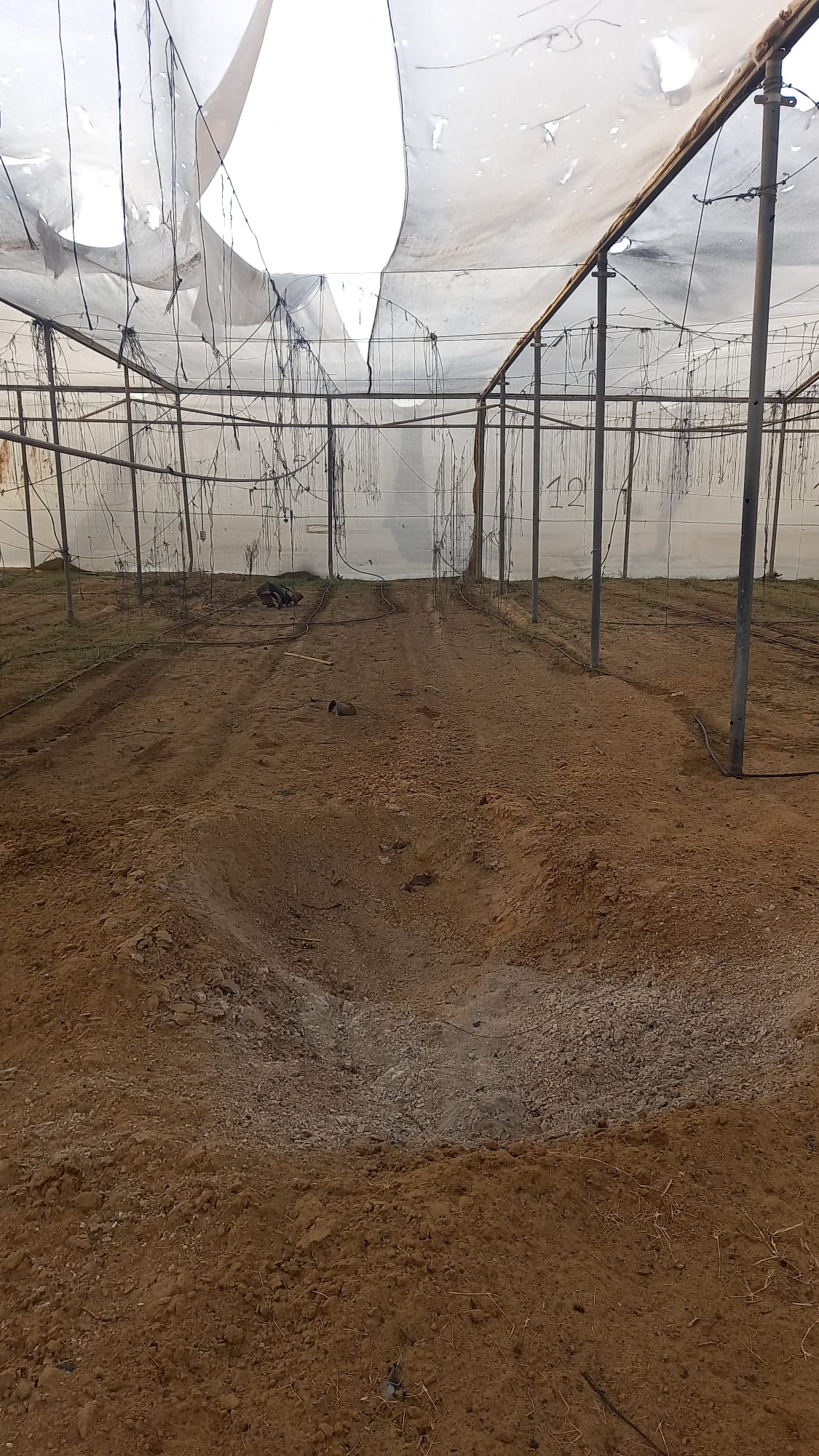
But even if these actions weren’t taken, Sharon believes there is still room for action, and he turns to the public: "If people understand the importance of consuming Israeli produce and insist on it, it directly helps us. I would expect that just as people are willing to pay more for organic tomatoes or, differently, for superior kosher, they should strive to buy only local produce, even if the price is slightly higher. This is a huge salvation for us farmers and, eventually, will affect the consumers, as it's the only way to sustain agriculture here and secure our produce without relying on foreign countries."
The Ministry of Agriculture responded: "The Ministry of Agriculture maintains functional continuity along the supply chain to ensure food security, conducting continuous assessments. The ministry is in constant contact with farmers to resolve issues immediately, approaching each farmer proactively to solve challenges promptly. The ministry's CEO personally reached out to retail chains in Israel, demanding they prioritize local produce over imports. Additionally, the ministry supports the imminent launch of online trading platforms for direct agricultural sales from farmers to consumers and the institutional market. Moreover, the ministry has launched a national campaign to encourage the purchase of local Israeli produce and will continue to encourage local production."

